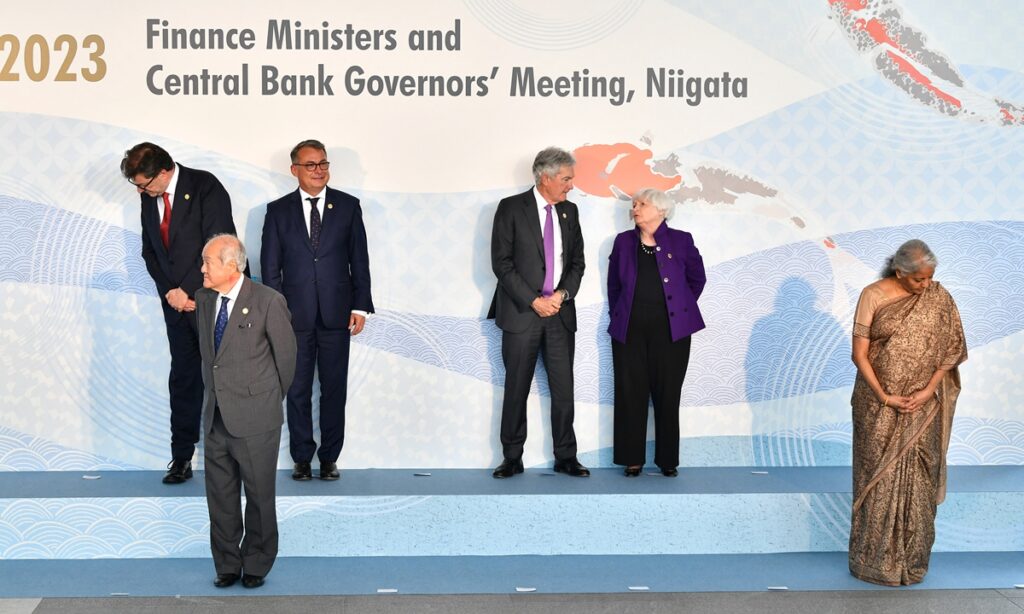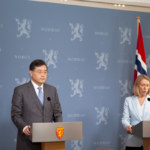While the US reportedly pushed for plans to counter China, finance leaders of the Group of Seven (G7) nations on Saturday concluded a three-day ministerial meeting in Japan with a joint communique making no mention of China.
However, experts said this does not mean the bloc will correct its hyping of China-related topics, and warned that the upcoming G7 summit still may scapegoat China for their own problems.
The communique said the global economy has been faced with multiple shocks including the COVID-19, the Ukraine crisis, and inflationary pressures. “We need to remain vigilant and stay agile and flexible in our macroeconomic policy amid heightened uncertainty about the global economic outlook,” read the communique.
The warning came at a time when the lingering US debt crisis has brought more uncertainty to global economic stability.
The G7 also reiterated their determination to enforce sanctions against Russia, pledged to bring inflation under control, and vowed to launch a framework for supply chain collaboration in clean energy to “enhance economic resilience globally against various shocks.”
Reuters reported on Friday that G7 finance leaders would debate the idea of targeted controls on investments to China, but the communique only mentioned the G7 will work to ensure foreign investment “goes where it is most needed, is of high quality and does not undermine the economic sovereignty of host countries.”
Although US Treasury secretary Janet Yellen, ahead of the finance ministers’ meeting, had called for “coordinated action” by G7 nations against the so-called “economic coercion” from China, the communique didn’t make any specific mention of the topic.
“Most of the US-led economic attacks on China focus on high-tech embargoes, ideological value-based supply chains, criticism toward China’s trade practices, and risk of relying heavily on China, but none of these lies in the businesses of financial ministers,” He Weiwen, a senior fellow at the Center for China and Globalization, told the Global Times on Saturday.
But that doesn’t mean they won’t attack China in subsequent meetings, He said.
A Reuters report, citing a US official familiar with the matter, said on Friday that G7 will discuss concerns about China’s use of so-called “economic coercion” at the upcoming G7 summit in the Japanese city of Hiroshima from May 19-21 and a joint statement is expected to include proposal on how G7 will work together to counter such practices.
Such attempts drew a harsh response from China. At a regular press briefing, Wang Wenbin, a spokesperson for the Chinese Foreign Ministry, said that “If any country should be criticized for economic coercion, it is the United States. The US has been overstretching the concept of national security, abusing export control, and taking discriminatory and unfair measures against foreign companies. This seriously violates the principles of market economy and fair competition.”
According to media reports, US government sanctions designations soared by 933 percent between 2000 and 2021. The Trump administration alone imposed more than 3,900 sanctions, or three per day on average within four years. More than 9,400 sanctions designations had come into effect in the US by fiscal year 2021. The US has slapped unilateral economic sanctions on nearly 40 countries, affecting nearly half of the world’s population.
(Global Times)




